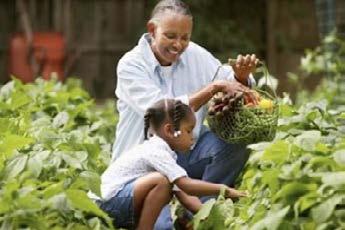



BERMUDA PARENT EDSOMA 46 BERMUDA'S YOUTH & FAMILY RESOURCES Reading Game Changer THE MYTH OF EATING FOR TWO WHEN PREGNANT 10 RECIPE 39 Chocolate Chip Pie! I know, right!! FALL 2021 Special Olympian Solay Thomas (64)
First Steps: Resources (for ages 3 - 7)
Whisk them away and let their imaginations run wild. This video features a reading of our Fairer Tales book along with activities that bring an introduction to money to life. Exploring topics like working to earn money and how money helps us buy things we need, as well as things we want.

Developing Skills: Resources (for ages 7 -11)
This Young Money lesson from the Antarctic looks into the decisions we make between needs and wants, and teaches children how to make the right choices when spending their money.
Smart Money: Resources for (ages 11 - 16)
Your kids don’t have to be master detectives to stay safe from fraud – with eye opening facts and fun quizzes, they will be detecting scams and unmasking fraudsters in no time.
Financial Education: Resources for young adults Bills? Budgets? Borrowing? Now that you’re becoming financially independent, we’re here to support you, so you can get to grips with what it all means, helping you to level up your finances and become financially fitter.

Issued by HSBC Bank Bermuda Limited, of 37 Front Street, Hamilton Bermuda, which is licensed to conduct Banking and Investment Business by the Bermuda Monetary Authority.
www.hsbc.bm/education
Visit
your
Financial Literacy
ABCs
At HSBC, we’ve developed a series of interactive online educational resources to help your child learn to manage their own money 7.375x9.875_FinancialLiteracy_ParentMag.indd 1 8/18/21 6:38 PM
Teach
children
from
through to adulthood
The Team:
Advertising Sales: adsales@kncmediagroup.com
Marketing | Design & Production: bpDesigns
Writers & Contributors:
Reva Minors, Shana Jones, Tanni Haas, Alicia Resnik, Ieisha Tucker-Minors, Lorene Phillips, HSBC, FM, Chris Faria, Dorothy Bradshaw, Honest Greens Bermuda, Lia Smith, Keisha Allen-Smith, Gladwin Daniels


Contributing Photographers:
Shutterstock
UnSplash
Pexels
Contact Us:
• editor@kncmediagroup.com
• Tel: 531.5489
• www.mybermudaparent.com
mybermudaparent
bermudaparent
Bermuda Parent Magazine is published four times a year. Reader correspondence, photo submissions and editorial submissions are welcome. We reserve the right to edit, reject or comment editorially on all material contributed. No portion of this magazine may be reproduced without express written consent of the publisher. The opinions expressed by contributors or writers do not necessarily reflect the opinions of this magazine. Distribution of this product does not constitute an endorsement of the products or services herein.
PUBLISHER’S NOTE

 Kim N Caisey PUBLISHER | EDITOR
Kim N Caisey PUBLISHER | EDITOR
Greetings
Greetings bp Family,
As we head into the fall months, Thank God it is starting to cool down. The heat and the hot flashes were just too much this Summer!
As the kids are back in school, well online learning, LOL. Yes, I know mom and dad, not the desired outcome for school but as you find time to take a break read our magazine for some insights with Awareness. This is the time to make you aware of certain issues before the new year rolls in. Consider this prepping time!

In this issue, you will find “The Myth About Eating for Two’, ‘The Dirty Secrets of Money’ and content around awareness of Learning Disabilities or Challenges I like to call them. Check out EDSOMA: A new reading App. It's a Reading Game Changer. You will also find some yummy recipes for the winter months.
I needed to let you in on some changes for the new year so it’s not a surprise. We will be giving so much more in the months to come as we have been prepping as well. So please subscribe to the magazine via Instagram @bermudaparentmagazine.
Our year is rapidly coming to a close and I want to leave you with some things to ponder. Don’t be afraid to ask for help. We are in some trying times and truly need each other. No DEGREES OF SEPARATION. We are all in this fight together. Stay strong and stay safe Bermuda.
We love you.
@Bermuda Parent
4
bermudaparentmagazine.com



CONTENTS FALL BABY 10 The Myth of Eating for Two When Pregnant KIDS 18 Learning Difficulties Do Not Have to End in Academic Failure 20 How to Protect Your Kids from Cyberbullying 22 Garden Adventure Time! TEENS 26 Sleep and Your Teenager 28 bpListing Directory PARENTING 32 The Necessary “No” 34 3 Skills That Will Position Your Kids to Succeed Every Time. RECIPES 38 Cinnamon Basil Smoothie 39 Yummy Beef patties 40 Chocolate Chip Pie 64 Special Olympics SPORTS 44 PGA EDUCATION FINANCE WELLNESS COMMUNITY 60 Mindful Moment 48 Edsoma Reading App Game Changer 53 Financial responsibilities of raising a child with special needs 54 Are your children money smart? 56 Dirty Secrets of Money! TODDLER 14 Great Reading Apps For Boys 70 Gladwin C Daniels SPOTLIGHT ON TALENT
BABY

The Myth of Eating for Two When Pregnant

It’s an age-old saying that is largely based in fiction, not fact. While you may be carrying an extra person, you are not eating for them as well. With the holidays coming up it is important to bear this in mind and practice healthy eating habits. Research has shown that overindulging can lead to gestational diabetes, high blood pressure and harmful weight gain. Gaining weight is part of pregnancy, and is also encouraged, but when it is gained rapidly, and in excess, with disregard to nutrition it can be dangerous to your body and how it is able to function.
Portion control
The majority of pregnant people will experience some sort of nausea during pregnancy, particularly in the first trimester. You may have an aversion to food and decrease in appetite because of it but typically the nausea subsides after the first trimester. Digestive discomfort can also be triggered if too much is in the stomach to digest comfortably, with the baby taking up some of the real estate that would usually belong to your digestive organs. Using smaller plates is a good way to maintain portion control; where there is less space to place food the likelihood of you eating beyond what is comfortable for your body decreases. Eating smaller meals throughout the day is another useful way to avoid





extreme hunger that can lead to overeating while also helping with digestion and avoiding the nausea that can be triggered with eating larger meals.
Food choices
Less sugar, more nutrition is the motto. Fruits are a good snack and some can double as additional hydration but you even have to watch your fruit consumption as fruit has natural sugars (same with carbs). An occasional treat is not a sin but there shouldn’t be a constant barrage of meals that are devoid of nutrients and vitamins. You have to replenish what the body is taking from you to sustain the baby, if you have nothing left in the tank for yourself you will start to feel the difference and this can
choices you’re making during your pregnancy. Bermuda has one of the highest rates of diabetes per capita based on our diet; the sugary drinks, carb overloading, minimal emphasis on vegetables (corn is not a vegetable, sorry) and mainly sedentary lifestyles. Start with small changes so it doesn’t feel so drastic and joyless and keep your beautiful baby and body in mind for motivation. Take care of yourself this upcoming holiday season and take charge of your food choices.
Reva Minors is owner and operator of Loquat Roots: Doula Services & Holistic Therapy. She is mother to two energetic children, doula, tea maker, home birth facilitator, author and entrepreneur. Visit her website www.loquatroots.com or her social media accounts @loquat.roots for more information about her and her businesses.
lead into dangerous territory. This is important throughout the whole pregnancy and helps to set good habits for yourself into the postpartum period, where nutrition is just as important for healing and breast/ chest feeding, if that’s what you choose to do. It is a cruel test of will with cravings of sugar and hamburgers (trust me I know – pizza and bacon were my cravings) but if you can be creative with your cravings and find healthier substitutes this will pay off in the long run.
Partners
If you’re doing the grocery shopping don’t buy the tempting foods; if it’s not in the house, you can’t be tempted. This may also mean changes in your eating habits as well, to support and encourage your pregnant partner during a time that may be difficult to overcome. It will also help you curb the effects of gaining “sympathy weight”, where the nonpregnant person experiences weight gain, but mostly it’s to help keep your partner happy and healthy.
If in doubt, speak to your doctor, a dietician or a nutritionist. Remember, this is not about weight, it’s about the food
CONTINUED ON PAGE...
The opinions expressed here are those of the author and not necessarily those of the magazine or editing team. Please consult with your doctor before making any choices.
PARENTING 11 FALL 2021 BABY 10 bermudaparentmagazine.com
BABY
TODDLER

Great Reading Apps For Boys
 Tanni Haas, Ph.D.
Tanni Haas, Ph.D.
aBc alPhaBet Phonics
(Available at: Apple Appstore, Google Play; Ages 3-5)
This app teaches young kids letter recognition through fun play. Three letters are shown on the screen, and one of the letters is sounded out by a narrator. The kid then has to tap the correct letter which is circled in red and, when they get it right, they’re congratulated in a warm voice. You can customize the screen to correspond with your kid’s developmental stage, including a hint displayed, choosing all lower or upper case letters, or having the letters illustrated with images. Best of all this app doesn’t require sophisticated hand-eye coordination: the letters are spaced out so kids don’t tap the wrong letters by mistake.
aBc Magic Phonics

(Available at: Apple Appstore; Ages 3-5)

Developed by a team of educators using Montessori principles, this fun app also teaches kids letter recognition. It’s well-suited for kids with developmental delays. The letters aren’t just displayed and sounded out; they’re repeated multiple times and used in words that are rhymed. The simplicity of the graphics is great for kids with ADD – they’re unlikely to be distracted by the graphics, but will instead focus on the skill being taught.
hooPla digital
(Available at Apple Appstore, Google Play; Ages 3+)
Bio:
Tanni Haas, Ph.D. is a Professor in the Department of Communication Arts, Sciences, and Disorders at the City University of New York –Brooklyn College.
keyword) as well as quizzes that let kids track their learning. Most of the categories are of interest to boys, including “Money,” “Science,” and “Sports.” Each article is available at 5 reading levels, which means that as your kids become more proficient readers, they can read the same article at consecutively higher levels, learning more about their favorite topics. More than 10 million kids are already using this app.
read with Phonzy



(Available at: Apple App Store; Ages 3-5)
It’s one thing to help our kids learn how to read; it’s another to get them access to exciting reading materials. Hoopla Digital is an easy-to-use app which allows you to borrow, free of charge, several hundred thousand eBooks for readers of all ages. This app includes many comics, which boys are likely to enjoy. They can read the comics either panel-bypanel or a whole page at a time, depending on their preferences and reading abilities. All you need to access this app is a library card to your local public library.
Khan acadeMy Kids


(Available at: Apple App Store, Google Play; Ages 3-5)
This award-winning app is a comprehensive learning resource for young kids, including a huge database of reading activities. Kids can record themselves reading, either on their own or accompanied by recorded audio narration, play back the recordings, and learn from their mistakes. You can chart their progress, see if they’ve mastered certain learning goals, and have them receive extra instruction in areas where they need some additional help.

MonKey Match
(Available at: Apple App Store; Ages 3-5)
Inspired by PBS Kids’ Emmy award-winning literacy program, Between the Lions, Monkey Match teaches kids three important reading skills: 1) the difference between upper and lower case letters, 2) the beginning sounds of words, and 3) rhyming. It has three sections, each devoted to one of those skills. In the “Upper- and Lowercase Letters” section, kids match uppercase letters to their lowercase counterparts, in the “Beginning Sounds” section they match images of words to their beginning sounds, and in the “Rhymes” section they match pictures of words to rhyming words. This app is a great supplement to ABC Alphabet Phonics or ABC Magic Phonics.
newsela student
(Available at: Apple App Store, Google Play; Ages 3+)
This app complements Hoopla Digital by having a large library of news articles (all searchable by

In this app, kids read out loud five simple sentences, which are accompanied by an image to help them better understand what the sentences are about. They tap and hold the microphone button while reading the sentences. The built-in voice recognition software gives kids feedback on whether or not they pronounced the sentences correctly. If they need extra help, they can tap a help button to hear the narrator read the sentences out loud.
reading racer

(Available at: Apple App Store; Ages 6-8)

Like Read with Phonzy, this app can teach kids how to read out loud. The main difference is that Reading Racer is aimed at slightly older kids. Kids choose racer avatars, and then select reading material from more than 200 stories, jokes, and rhymes. The jokes, in particular, are meant to appeal to boys. Kids read selected pieces and get feedback from a narrator while reading. The app has two modes: “practice” and “race.” In practice mode, they read out loud without any assessment. In race mode, they’re expected to read as quickly and accurately as they can and receive feedback on their performance.
starFall: learn to read
(Available at: Apple App Store, Google Play; Ages 3-5)
Starfall: Learn To Read will help kids learn different vowel sounds. They choose from short stories with plots that center around particular vowel
sounds. They read a story, get feedback on their pronunciation, and then hear it read out loud correctly by a narrator. When they complete a story, they can play related activities like fill-in-the-blanks or watch entertaining videos about the concepts taught in that story.
starFall: i’M reading



(Available at Apple App Store, Google Play; Ages 6-8)
Starfall: I’m Reading continues what kids learn in Starfall: Learn To Read, but at a higher level. The app includes more sophisticated stories and vocabulary, including comics, folk talks, and Greek myths, that appeal to boys. A great feature of this app is the AutoRead, which models fluent reading.
VocaBulary sPelling city

(Available at: Apple App Store, Google Play; Ages 6+)
This app helps strengthens kids’ vocabulary while also improving their word retention and fluency in pronunciation. It has nine interactive words games. Each game allows kids to read, hear, and play with words, including common words that they’re likely to find in non-fiction. The app also has interactive sounds boxes, voice recordings, and animations. Kids can also create review lists of words so they can practice them for greater retention.
14 15 bermudaparentmagazine.com FALL 2021 TODDLER
KIDS

Learning Difficulties Do Not Have to End in Academic Failure
 By Stephanie Guthman
By Stephanie Guthman
Decades of practical experience have shown us that not all children learn the same things, at the same pace. Many children have learning differences that may result in considerable school challenges. Regardless of learning pace or capability, children with learning differences often have strengths in one or more of the “3C’s”—Complex problem-solving, Creativity, and Cognitive flexibility. Children with learning differences, such as dyslexia or ADHD, often have stronger capacities in making unusual connections between things that don’t seem to be connected, out-of-the-box thinking, and other types of creativity in one or more areas. It is these “3 C’s” capacities that companies are most looking for when they hire new employees.
Sadly, most traditional educational systems do not easily accommodate students who learn differently—and this can be one of the most marginalizing factors in a child’s life during the early academic years. School systems often over-focus on specific learning objectives, and thus inadvertently project negative expectations for children who find traditional, mainstream academics to be challenging. The deficit-based mindset that permeates most traditional educational systems often leaves children feeling that they are “broken” and need to be “fixed”. This can become self-limiting and prevent students from participating in class, asking questions, and learning how to learn from their mistakes.
Children who have learning differences or other cognitive disabilities are often promoted through the educational system before they can develop the coping strategies they need to interact effectively with their peers, learn HOW to learn, and persevere in a positive manner in the face of challenges. For these students, school often becomes a series
of overwhelming challenges that seem insurmountable. These students find everything about school, and life, to be a constant struggle. Teachers, friends, and parents often add to the stress, in spite of their best intentions, because they do not have the tools and support they need to do what is best for the child.

At age 9, Ty was already well behind his peers in reading skills. His teachers said he was inattentive and disruptive during class. Ty’s parents could not understand the problem as there were no obvious signs of problems outside of his school environment. He was on the swim team and rugby team. His coaches found him to be extremely hard working and easy to engage. At home, he was always eager to learn. Ty’s parents met with the teacher and also consulted with an outside agency, which recommended that he be assessed for a learning disability.
Ty completed a battery of academic and psychological tests designed to determine whether he had a learning disability. Ty performed extremely well on several of the tests, which indicated that his primary strengths include solving novel problems, making conceptual connections, and thinking outside of the box. After the testing process, Ty’s parents attended a school meeting and quickly learned that his teachers were more focused on his challenges and inefficiencies rather than his strengths. This happens a lot because teachers experience a great deal of pressure to ensure that all students meet certain standards based on the curriculum, what is known as “teaching to the test”. Ty’s parents wondered whether he could cope with the school’s current academic curriculum and be successful during the school year. Like many families, Ty’s parents were concerned and didn’t know where to start.
Here are some ideas for families of


Young children thrive when they have secure, positive relationships with adults who are knowledgeable about how to support their development and learning. The relationship between an adult and a child—the emotional quality of their interaction, the experiences they share, the adult’s beliefs about the child’s capabilities—helps motivate young children’s learning efforts and inspire self-confidence.
Confident minds grow here.
students who have learning differences or difficulties: Make sure you have all the information you need—assessment, understanding the diagnosis:
If you suspect your child has a learning disability, it’s important to get a diagnosis as soon as possible. If you are concerned, don’t let anyone else convince you to wait. Remember, others may have expertise in education or learning disabilities, but you are the expert on your child. In order to get a definitive diagnosis, a psycho-educational assessment should be scheduled. Your child will undergo a battery of standardized tests that assess intellectual, academic, and social, and emotional development. Once diagnosed, ask for a “plain language” explanation of what the disorder is and how it affects the way your child learns. Also, clear up any misconceptions that you may have about the diagnosis. Then, explain to your child what the disorder is in the language your child can understand and how it affects the way they learn. Be sure to reinforce for your child that this particular disorder is not to be interpreted as “I’m stupid” or that it will somehow “just go away” when your child grows up.
Build trusting relationships with your child’s teachers:
Get the extra help your child needs: If your child has a learning disability, your child’s doctor or school might recommend extra help. A reading specialist, math tutor, executive function coach, or another trained professional can teach your child coping and learning strategies and other techniques that will improve his / her academic, organizational, and study skills.
Focus on engaging your child in his / her or his strengths, interests, and passions: All children have things that they do well and things that are difficult for them. Find your child’s strengths and help them learn to use them to showcase their creativity. Your child might be good at math or sports or could be skilled at art, working with tools, or love animals. Be sure to praise your child often when he/she does well and succeeds at a task.
Be an advocate for your child: You may have to speak up time and time again to get special help for your child. Embrace your role as a proactive parent and work on your communication skills. It may be frustrating at times, but by remaining calm and reasonable, yet firm, you can make a huge difference for your child.
Learning differences are not a prescription for failure. With the right kinds of instruction, guidance, support, and intervention, all learners can become resilient, learn how to shift their perspectives, and begin to direct their own learning journeys.
For more information about learning differences, go to www.readingclinic.bm
For more information about mindsets go to www.flexiblemindsets.com
reFLEXions® is a community alliance of professionals with a diverse range of expertise. Their tailor-made interventions build Flexible Mindsets that equip learners with the tools they need to respond resiliently and adaptively to adversity and uncertainty. The recent addition of Dr. Stephanie Guthman’s expertise in ACEs (Adverse Childhood Experiences) has allowed reFLEXions® to expand resources for addressing the underlying causes of learning difficulties and negative school outcomes.
Stephanie Guthman, PhD Special Projects Consultant
KIDS KIDS 18 19 bermudaparentmagazine.com FALL 2021
Eagle Hill School is a premier college preparatory boarding school for students in grades 8–12 with diverse learning profiles such as ADHD and dyslexia; and is an authorized IB World school offering the IB Diploma Programme. www.eaglehill.school Hardwick, Massachusetts 413-477-6000 EAGLE HILL SCHOOL VISIT US AT THE Learn Differently School Fair!
Where diverse learners achieve success.
By: Tanni Haas, Ph.D. is a Professor in the Department of Communication Arts, Sciences & Disorders at the City University of New York – Brooklyn College.

How to Protect Your Kids from Cyberbullying
One of parents’ greatest fears is that their kids will become the victims of cyberbullying, and for good reason: research shows that almost half of all middle and high school students are cyberbullied at some point. If that’s the case, what can you do to protect your kids?
First, monitor your kids’ online behavior on a regular basis and pay close attention to which sites they’re on, who they interact with, and the nature of their interactions. As Sarah Brown, an expert on children’s use of technology, says “Being familiar with their online world is the best way for you to notice if something is wrong.” Research shows that parents who don’t monitor their kids’ online behavior are more likely to be unaware that their kids are being cyberbullied. There are many ways to monitor what your kids are doing online, including setting up their online accounts together with them so that you know their
usernames and passwords, creating Google Alerts with your kids’ names, installing monitoring software on their devices, and requiring them to allow you to “friend” or “follow” them online.
If you notice any interactions that could be the cause for alarm, speak to your kids right away. Since kids often try to hide the fact that they’re cyberbullied, ensure them ahead of time that they can always come to you with any problem, no matter how big or small. It’s very important, say Drs. Sameer Hinduja and Justin Patchin of the Cyberbullying Research Center, to “cultivate and maintain open, candid lines of communication with your children, so that they’re ready and willing to come to you whenever they experience something unpleasant or distressing in cyberspace.”
Ensure your kids ahead of time that you won’t ban them from going online if they come to you for help. As Dr. Michael Nuccitelli, a well-known child psychologist and expert on cyberbullying, says, consistently remind your kids that “they’ll not lose their online privileges, interactive online gaming time, mobile devices or social network site privileges due to cyberbullying issues provided they are open, honest and forthright.” Try not to overreact to situations as this will make your kids think that you’ll overreact if they tell you about being cyberbullied.
When you speak to your kids about their online activities, encourage them not to respond in kind to wannabe cyberbullies: this will only exacerbate the problem. Tara Fishler, a prominent expert on mediation and conflict

resolution, says that “responding lets the bully know they affected you. Not posting a response gives you some control so you are not sucked into their harmful activities.” Instead, help block any wannabe cyberbullies from reaching your kids.
As part of your regular conversations with your kids, teach them safe online habits. This includes such basic online security measures as never revealing identifying, personal information like their home addresses, phone numbers, and where they go to school; not sharing their usernames and passwords with others; not leaving online accounts accessible and vulnerable on public devices; and never opening messages and links from people they don’t already know.
Your kids should also learn to select appropriate privacy settings on their online accounts, so that they only accept friends or follow requests from people they personally know, and allow posts
to be broadcast only to their circle of friends or followers. As Mrs. Brown succinctly puts it, “Limiting online exposure helps keep the bullies at bay.”
More generally, teach your kids to think carefully before they post anything online. They need to understand the potential repercussions from anything they post, including how certain posts could be used maliciously. A good rule of thumb is to say and do online only what you would say and do face-to-face to someone. Your kids should understand that as soon as they post something, it’s out of their control. Their posts can be forwarded without their knowledge or consent. Ruth Carter, a lawyer who specializes in social media and internet law, says “Kids should be taught early and often that they have no idea when a post will take on a life of its own and go places they can’t control.” A more strict but no less useful approach would be to establish actual


“rules” for your kids’ online activities, including by deciding which sites they’re allowed to access, for how long, and what they are permitted to do on those sites.
Afinal way you can protect your kids from becoming the victims of cyberbullying is to stay in regular contact with their teachers. Since a kid’s cyberbullies are often to be found among his or her class - or school mates, teachers are some of the best sources of information about any potential problems at school. It’s important that you speak to their teachers not just about how they’re doing academically, but also socially. Teachers may notice troubling interactions inside or outside the classroom.
20 21 bermudaparentmagazine.com FALL 2021
Garden Adventure Time!
September is upon us which means the kids are going back to school but what’s even more exciting is that this is the start of our homegrown vegetable garden season! While it may still seem a bit hot, now is the perfect time to make a plan, prepare the garden and get those seedlings started. But you don’t have to do it alone! Get the kids out of the house and take them on an adventure in the garden today! Are you ready?
zero to three years old
Children of all ages love being in the garden. Babies and toddlers, while too young to do tasks in the garden, benefit from sensory exploration in the garden. Try sitting with them in the grass and let them feel it between their fingers or let them play with the soil, if they get dirty, even better that's half the fun! Help them to get to know the garden by naming plants and insects but what’s most important with children this age is to give them their space to explore the garden on their own.
three to six



As the child gets older she is able to help with tasks in the garden. Pulling weeds which is the bane for most gardeners is actually something young children love to do. Describe to them the different plants in the garden and direct them as to what’s a weed and what are plants that you want to keep. Each time you return to the garden encourage them to name the plants, describe what kind of texture the leaves have or what is the plant used for.
This is a great age, especially five and six year olds, to get involved with sowing seeds too. You can add to the excitement of watching the plants growing by inviting them to do an experiment where they first sprout the seeds on a damp paper towel and then plant them in pots keeping some in the house and some outside. This is a learning experience for them to observe the differences between those growing indoors and those outside. Collecting seeds is a great activity for children this age; as their collection grows, so does the excitement about using them in the future.
six to nine




At this age your children can start helping with more complex garden chores like loosening the soil and transplanting seedlings into the garden. Allow them to explore different elements of the garden like soil textures and their effects in the plants you grow by doing a soil test in a jar; instructions for this can easily be found online.




Another fun activity could be to design and plant a butterfly garden. Butterflies love marigolds, milkweed, pentas and passion fruit to name a few and kids get really excited seeing their hard work pay off when all the colorful visitors arrive. Before you know it your young gardeners will be dragging you out to the garden. Enjoying the garden as a family is a beautiful bonding experience. It also has many mental and physical benefits so don’t wait any longer, get outside and start growing your garden today!
Want to learn more about growing your own food at home? Unsure where to start? Visit our website and sign up for one of our Sustainable Farming 101 Workshops at www.agraliving.org.



KIDS KIDS 22 23 bermudaparentmagazine.com FALL 2021
C hris F aria is the F ounder o F t he a gra L iving nstitute and is a C erti F ied gro W B iointensive ™ tea C her F o LL o W them on nstagram @ agra _ L iving F a C e B ook a gra L iving nstitute - g ro W B iointensive B ermuda C i Leadership We Welcome You To Join Our Diverse Learning Community For 6th - 12th Grades Learn more today! We Are Vanguard! YOUR AD HERE.... Reach the International Bermuda Market when you advetise. FOR INFO: ADSALES@KNCMEDIAGROUP.COM
TEENS

Insufficient sleep among teens has been found to be higher among women than men.
Older teens report getting less sleep than people in early adolescence.
Teens who identify as Black, Asian, and multiracial have the highest rates of reduced sleep (sleeping less than eight hours per night).
how sleeP changes during adolescence
Teenagers require more sleep as they transition to young adulthood, however many experience increasing sleep deficits as they mature.
easy stePs to helP
Talk with them – ask about the quality of their sleep. Data suggests that many parents may not realize if their children are having sleeping problems.
Help create a sleep-promoting environment in their bedroom (cool, dark, quiet).
Help create a consistent wind-down routine to help with relaxation.
Avoid caffeine and energy drinks, especially in the afternoon and evening.
Sleep and Your Teenager
If you have a teen in your house, it may be all too familiar to see them struggle with getting up and out of bed at a ‘decent hour’. The struggle is often real. According to the data, there is a good chance that your teen may not be simply lazing about, but that they may actually be getting insufficient and/or poor quality sleep due in part to changes in their biology.
According to the National Sleep Foundation, the sleep-wake bioregulatory factors appear to undergo significant changes during adolescence irrespective of culture or geography. These changes lay the groundwork for the biological night
to occur later during the teen years than before. Circadian rhythms (daily biological clock) seem to slow down and lag behind as young people progress through the middle school years. At the same time, the sleep pressure system appears to change in a way that makes it easier to stay awake longer, though without changing the amount of sleep that is needed.”
Both the National Sleep Foundation and the American Academy of Sleep Medicine agree that teenagers need between eight and 10 hours of sleep each night.
Surveys however indicate that the majority of teens fail to achieve even the minimum threshold of





eight hours. Data from multiple US national surveys conducted from 2007-2013 found that nearly 69% of high school students got seven or fewer hours of sleep per night.
teen sleeP restriction Facts
Estimates place the rate of insomnia in adolescents at as high as 23.8%.
Students in early morning classes report being less alert, more weary, and having to expend greater effort. 58 to 68% of teens report being “really sleepy” between 8 and 10 a.m.
Teens can experience real consequences due to ongoing sleep deprivation beyond sleepiness. Poor quality and / or inadequate sleep can negatively affect physical and mental health as well as the ability to control behavior, emotion and attention. It can also be a significant impediment to learning, attainment of social competence and general quality of life.
During adolescence, there is a strong tendency toward being a “night owl,” staying up later at night and sleeping longer into the morning. Experts believe this is a two-fold biological impulse affecting the circadian rhythm and sleep-wake cycle of teens. As teens progress through adolescence, they often develop a sleep drive that builds more slowly, which means they may not start to feel tired until later in the evening. Melatonin, a naturally occurring sleep promoting hormone, is produced later in the day and they may in fact experience a peak of wakefulness around 9pm!


If allowed to sleep according to their body’s natural schedule, many teens would get eight hours or more per night, sleeping from 11 p.m. or midnight until 8 or 9 a.m., but school and work start times often force them to wake up earlier in the morning.
Put away electronic devices for at least a half-hour before bed and keep them on silent.
Manage scheduling and commitments, so that stress is reduced and adequate time is reserved for winddown and sleep.
If your teen has persistently poor sleep quality, consult with a sleep specialist.

Beyond Fatigue
Other factors that may negatively impact sleep quality
Certain sleep disorders, such as obstructive sleep apnea, restless leg syndrome and narcolepsy can all begin to manifest in the teenage years and if unaddressed may become a long-term challenge deep into adulthood.
Teenagers who suffer with depression, anxiety and other emotional / mental health challenges may find that these disorders affect their sleep as well.
Learning how to create healthy sleep habits is the long-lasting gift your family deserves.
26 bermudaparentmagazine.com TEENS
iMProVe
your teen’s sleeP
B y d orothy B radsha W 41 st W ink
Dorothy Bradshaw is a sleep health educator, sleep coach and consultant. For more information on how to get ‘Better Sleep For Your Family’, visit www. the41stwink.com or email her at the41stwink@ gmail.com
PriVate school directory - saltus




Saltus is Bermuda’s premier co-educational, independent day school for students aged 4-18. Known for our high academic standards and the success of generations of Saltus alumni, Saltus today is a diverse, creative and innovative learning environment for students seeking a rich educational experience that prepares them for the world of opportunity to come. We are an accredited member of CAIS, Canada’s independent education accrediting body whose strict standards are the seal of excellence for the country’s finest schools. The range of our programme embraces a global perspective and underscores our commitment to students’ aspirations wherever that might take them

Boarding Schools Directory


Located just minutes from historic Boston MA, Fessenden is the oldest and most prestigious U.S. boarding school for boys, ages 11-15, in the U.S.




Fessenden embraces a student-centered, teacher-supported approach that promotes interactive exchange over direct instruction, collaboration over competition, and learning for life over learning for school. The Fessenden boarding experience is specifically designed to provide the academic, social, and emotional support boys need during their critical pre-teen/teen years. And, with a weekend program considered to be one of the best in the country, it is no wonder that Fessenden attracts students from across the U.S. and around the globe. Learn more at fessenden.org or call us at 617-620-2300.
The Gow School is a college-prep boarding and day school for students, grades 6-12, with dyslexia and similar language-based learning disabilities. Focusing on small class sizes, 3-7 students per class, and a low 4:1 student to faculty ratio, The Gow School offers a multisensory approach to teaching that enables dyslexic students to thrive. The Gow community has a sense of belonging, of equality, and of connection born on common trials and shared triumph.


In July, the school’s co-ed summer program is five weeks of learning and fun for ages 8-16! The Gow School Summer Program is for students who have been experiencing academic difficulties, or have been diagnosed with dyslexia or specific learning disabilities. The Summer Program runs from the end of June to early August with morning academics, afternoon fun and games and weekend adventures! The Gow School Summer Program gives students academic tools and self-confidence they can take with them wherever they go; to the classroom and beyond.
Email: admissions@gow.org



Phone: 716.687.2001



We support co-educational students in 6th through 12th grades who experience an array of learning challenges, by individualized learning opportunities, executive functioning solutions, while students gain the confidence to drive motivation and goal attainment. Our students utilize core values (community, resilience, integrity, empathy, and leadership) to self-evaluate their behaviors and intentions. All students are valued and celebrated for their individuality and strengths.
Vanguard Summer Camp takes students through Social Skills and Living Skills projects into the great outdoors! We assess student skills, work on Executive Functioning, and build friendships. Our experiences include interactive Adventure Camp (grades 6-12), Credit Retrieval (grades 9-12), or ACT Prep (for juniors and seniors). We are Vanguard.
Connect with us at: www.vanguardschool.org

1-863-676-6091
Albert College is a co-educational day and boarding school for students from Grades 7 to 12. With a focus on the 5 'A's: Academics, Arts, Athletics, Active Citizenship, and Adventure, our objective is to help students polish talents and discover new ones all within a caring and nurturing environment that values individuality, compassion, integrity, and inclusiveness.

28 29 bermudaparentmagazine.com FALL 2021 BPLISTINGS CAMP DIRECTORY BP LISTINGS DIRECTORY
292-6177 weB: www.saltus.BM 3-6 average c as ze Orton-based remed at on 4 1 S uden to acu ty a o On average our s ud n s come rom 25 s ates 20 count ies A coed co ege-prep board ng and day school or studen s, grades 6-12, w th dys exia and s m ar language-based earning d sab l t es Gow provides not us ano her opportun ty to try aga n but a rea opportun ty to succeed 155 Students Day and board ng Grades 6-12 100% C l eg accep ance Cla s o 2021 was awarded $5 m l on n academ c scho ar hip Fam i s are encouraged o app y f r need-based nanc a a d The G w Schoo has Open Houses chedu ed V s gow org adm s on to re erve your spo Morning Academics Af ernoon Ac v t es Weekend Adventu es June 27 2022 - July 30 2022 The Gow Schoo Summe Program s or s udents who have been expe enc ng academ c d f cu t es o have been d agnosed w th dys ex a or spec f c ea n ng d ab t es F ve week o earn ng and un o ages 8-16 The bes way to ge to know Gow s to v s ! Ca 716 687 2001 o v s gow o g summer-prog ams o earn abou the adm s on p oces and schedu e you v t
tel:
PARENTING

The Necessary “No”
Iused to look at this one kid in my Grade 3 class and think, ‘What’s it like to be adopted? What’s it like to be removed from your biological family for whatever reason and then have to assimilate into another family?’ He seemed like any other average, welladjusted kid from a stable household (stable at least financially: he was at a private school), but still I wondered, especially as he was a black child in a white family.
As an adult, what interests me more is the journey his adoptive parents took in deciding to take him into their family. Did fertility issues force them into it? How did his presence affect the family dynamic? Had any unanticipated emotional or behavioral issues shown up after the fact? How prepared had his adoptive parents been?
These are all legitimate questions, of course, but after all the priming and preparation, sleepless nights, and heartto-hearts with the adoption agent -- after all the impossibly endless waiting –sheer anticipation alone would make you answer the long-awaited phone call with a resounding “yes!”, right? Human nature says so, but the experience of some adoptive parents says sometimes it will have to be an unbelievable, heartrending “no”. This necessary “no” could shield you from an experience that’s beyond your sphere of capability (while at the same time making the child available to a family that is well-suited to him/her) or steer you clear of the idea of adoption altogether.
From couples who have walked the walk, here are some critical and possibly deal-breaking questions that should form part of the decision-making process:

is adoPtion For us?
Is either one of you on the fence or even mildly opposed to adoption?
How do your children feel about hav-
ing another sibling? How will the additional sibling affect them?
Are you prepared for the prospect of making this child a permanent part of your family? Fostering may be a suitable alternative to consider, as it is usually a temporary arrangement.
Are your home environment and support network adequate to help you navigate the experience?
Are you prepared for the cost involved? Again, fostering may be a suitable and cheaper alternative.
Can you successfully complete all of the assessments required by the adoption agency?
How will the presence of this child affect the family dynamic? Consider its effect on your marriage/relationship.
Consider your true motive for adopting, ie. are you looking to “replace” a lost child? Consultation with a counselling professional may be necessary here.
should we adoPt this Particular child?
Are you financially and otherwise prepared for any behavioural, physical, or emotional issues that may surface?

Are there any legal concerns, such as the possible emergence of the unknown father?
Are you willing to adjust your environment, schedule, etc. to meet this child’s needs?

How secure do you feel about the process, ie. is the mother badgering you for money or is the adoption agency pushing you to accept a referral outside of your stated capability?
Is there any evidence to suggest that the child may have been trafficked?
Is the child’s medical history inconclusive?


Are you comfortable with the communication and other boundaries between you and the biological parent(s)?
If this is a trans-racial or trans-cultural adoption, are you prepared to educate yourself as necessary and deal with the relevant challenges?
Now jump ahead into the future and relish the experience of your perfect family. You decided that you wanted to adopt and after rejecting a few referrals, you finally found your child. The learning curve was steep and the rollercoaster ride has been scary, frustrating, enlightening and awesome all at the same time. The challenges continue, but you remain grateful that you said “no” when you needed to. The silent voice from deep down affirmed that as heartbreaking and disappointing as it was, it was the right thing to do. By saying the necessary “no”, you released one child to be available to his/her perfect family and opened the door to welcome your child into your now perfect family.
PARENTING PARENTING 32 33 bermudaparentmagazine.com FALL 2021
S ource : T ha T T ime W e S aid “N o ” (T he h ear T breaki N g P ar T of a do PT io N )h TTPS :// WWW . gi N am P oirier . com / T ime - S aid - N o - hear Tbreaki N g - P ar T - ado PT io N /
B y s hana J ones
3 Skills That Will Position Your Kids to Succeed Every Time.
everyone is struggling with managing their finances. Parents need to show their children how to let go of their fear and anxiety around money with smart money management skills.


We need to discuss with our children the value of money through honest work and the respect for what money can provide and how it can be a resource to help others in need. When our children were younger, we taught them about splitting any money given to them into the following 3 categories or jars: GIVE, SAVE and SPEND. We discussed with them why it’s important to think about your money in this way, and how to manage it well. We showed them how to set up a basic budget, and how to track their spending. Find ways that work for your children that will set them up to confidently manage their money so that money will serve them well.
Building Relationships
Lorene Phillips is a (re)insurance executive and the founder of Clarendon Wallace and The British School of Etiquette, Bermuda. She provides executive and career coaching, business etiquette training and works as a motivational speaker and facilitator for clients. She is the proud mother of 3 young adults and co-author of the book ’29 Keys to Parenting & Win!. To learn more: www.clarendonwallace.com
I asked my 3 millennial and Gen Z young-adult children: “what are the 3 things you think every child should be aware of so they can succeed as an adult?” Here are the three areas they have identified as most important. I agree with them. I will tackle these 3 areas, in no particular order, and trust that you will find it most helpful and supportive as we all take this unscripted journey call parenting. Let’s begin!
Prioritize Wellbeing and Self-Care

We have always known that ‘putting on our mask first’ is the smart thing to do but what stops us from doing this? One of the reasons is a poor model that says to succeed you must: work, work, work and if you don’t succeed just work harder. No wonder so many of us are grinding at work and falling apart (aka burnout). Now imagine a home where we model for our kids a life that dem-
onstrates a work-life ethic that values rest and work as going hand-in-hand for sustainable success. This is possible and here are 2 ways you can start to model this work-life integration that values work AND personal well-being.
Set boundaries with your time
This practice ensures that time for well-being is a top priority. For example, put a daily item in your calendar for well-being so you can ensure you do not fill your day with no time for ‘play’. Don’t forget to include the children and make it family time.
Reassess your relationship with Technology
The Covid pandemic has taught many of us to become more proficient
with technology. That said, too much of anything is not good. Now is the time to show our children how to use technology to enhance our lives, not dimmish them. Consider coming offline at a certain time so you can engage and be fully present to create a deeper connection, meaningful interactions, and focus. Let’s start to recalibrate and look for ways to right-size the imbalance of screen time brought on by the pandemic so we can truly rest and recharge as a family.
It is true, all work and no play make us dull but remember: “Health is wealth”.
Basic Money Management
Financial planning guru Dave Ramsey says, “winning with money is 20% head knowledge and 80% behavior”. From the lower class to the upper class,
It’s our goal as parents to provide our children with what they need to thrive socially, academically, and professionally. ‘Treat others the way you want to be treated’ is the golden rule that will set your children apart.
Yes, it’s more about who you know than what you know. Learning how to make ‘small talk’ with anyone, listening well to ask great questions, and nailing the perfect personal presentation are all skills you can deliberately teach at home. These social skills make children more confident in the company of others and leave a great impression behind. Children will need these skills to build a robust network of connections that will help them to find great jobs and other opportunities. Start early to practice introductions at home, understand place settings at the dining table, use “please,” “thank you” and “excuse me”, always and speaking clearly so others can hear you.
It’s never too early to start or too late to catch up on these social skills. These skills will round off the exposures your kids receive from other extracurricular or passion activities and make them interesting and engaging as they build great relationships that will last a lifetime.
PREVENTING BREAST CANCER STARTS HERE

S u p p o r t i n g a l l y o u r b r e a s t n e e d s u n d e r o n e r o o f ; w i t h o u r h i g h l y e x p e r i e n c e d t e a m u t i l i s i n g t h e l a t e s t t e c h n o l o g y :



E a r l y D e t e c t i o n - M a m m o g r a p h y & U l t r a s o u n d
D i a g n o s t i c I m a g i n g & B i o p s i e s
T r e a t m e n t - R a d i a t i o n T h e r a p y
N o H e a l t h I n s u r a n c e ? A s k a b o u t o u r E q u a l A c c e s s
F u n d
F R E E " K n o w Y o u r L e m o n s " B r e a s t H e a l t h
P r e s e n t a t i o n s
0
w w w c h c b m i n f o @ c h c b m
PARENTING 35 FALL 2021 34 bermudaparentmagazine.com
3 6 - 1
PARENTING 2
0
1
RECIPES

ingredients
Cinnamon Basil Smoothie
Honest Greens Bermuda provides weekly, contactless delivery of fresh, locally grown specialty greens and culinary herbs. No GMO’s. No Toxic chemicals. No Crap. Yes Delicious!
Sign up for your 4 week ‘Trial’ subscription today at www.honestgreensbermuda.com. Use Promo Code BDAPARENT and get 10% off your first 4 weeks.
Have you ever had one of those days where you can’t seem to concentrate, where distractions stop you from completing simple tasks, and there’s an overall sense of jitteriness to your efforts?


I have to admit, I have. And if I take a moment to try and figure out why, I almost always come to the same conclusion: it’s because I’ve either been in a hurry and skipped breakfast or I’ve run out the door with something easy, rather than something nutritious, as a substitute for a good breakfast. It’s almost like starting off on a trip and forgetting to put gas in the car. The car won’t get very far and neither do I.
Children also experience this same reaction. Without a good, nutritious breakfast, they may get to school and find that they’re distracted, antsy, possibly still hungry, all of which can hamper their ability to focus and learn.
Food doesn’t just fuel our bodies. It fuels our brains, the powerhouse that drives our ability to learn and retain information. Several long-term studies have shown that there is a direct correlation between good nutrition and mental capacity in school-aged children.
According to information from the University of Florida Extension, iron deficiency, even in early stages,

can decrease dopamine transmission, thus negatively impacting cognition. Deficiencies in other vitamins and minerals, specifically thiamine, vitamin E, vitamin B, iodine, and zinc, are shown to inhibit cognitive abilities and mental concentration. On the upside, amino acid and carbohydrate supplementation can improve perception, intuition, and reasoning.
Fortunately, many of these key micronutrients are easily found with better food choices. Don’t look for them in boxes or wrapped in cellophane packaging. A much better place to find them is in whole foods –fresh fruits and vegetables, leafy greens, eggs, whole grains, and fresh meats.
If you’re a parent, you know that kids are natural snackers. You can bookend a child’s nutritional day, and give them a great energy boost for learning and retaining knowledge, by starting out with a breakfast that’s quick, healthy and nutritious, and having a great snack for them when they come home.
In the mornings, when everyone is trying to rush off to their day, a smoothie can pack a powerful punch of flavor and nutrition, while filling small tummies so they aren’t distracted by hunger pains at school. In the afternoon, snacks can be as easy as yogurt, cut up fresh fruits, nuts or trail mix (which can be made inexpensively at home), celery with peanut butter, hummus or cheese cubes.

In our Honest Greens Bermuda recipe book (https:// bit.ly/2WzTjf5), we have instructions for an easy, delicious and kid-friendly smoothie using cinnamon basil. Try it out with your kids and see how they like it!
n 2 tablespoons old fashioned oats
n 1 mango
n 2 cups milk, coconut milk or almond milk
n 1/2 tsp ground cinnamon
n 2-4 fresh basil leaves (can be regular any varietal, cinnamon basil makes flavour more intense)

n honey to taste
n handful ice
PreParation
n Place oats in a blender and pulse until powdery
n Peel the mango and cut in half, discarding the pit. Chop and place in a blender.
n Add milk, cinnamon, basil, honey, and ice. Blend until smooth.
38 bermudaparentmagazine.com
RECIPES RECIPES
Yummy Beef patties
P rep time: 50 minutes
C ook time: 30 minutes
T otal time: 1 hour 20 minutes

N utritional Facts:
Serving 10 371 calories proteins 11.9g carbohydrates 24.3g fat 24.9g cholesterol 57.2g sodium 466.9g
PreParation
n Preheat oven to 400 degrees F (200 degrees C). In a large bowl, combine flour, 1 1/2 teaspoons curry powder, and pinch of salt. Cut in 1/4 cup margarine and shortening until mixture resembles coarse crumbs. Stir in water until the mixture forms a ball. Shape dough into a log, and cut into 10 equal sections. Roll each section into a six inch circle (approximately 1/8 inch thick). Set aside.

n Melt the margarine in a skillet over medium heat. Saute' onions until translu- cent and stir in ground beef. Season with 1 teaspoon curry powder, thyme, 1 tea- spoon salt and pepper. Cook until beef is evenly brown, stir constantly. Stir in both and bread crumbs. Simmer until liquid is absorbed. Remove from heat.
n Spoon equal amounts of filling into each pastry circle. Fold over and press edges tomorrow, make a half circle. Use a fork to press edges and brush the top of each pastry with beaten egg.
n Bake in the oven for 30 minutes or until golden brown.
Chocolate Chip Pie
Cookies or pie? With this recipe, you don’t have to choose! Simple to make, it’s delicious and gooey, perfect for our cooler Fall weather. For pure descendant indulgence, serve the pie warm with vanilla ice cream, caramel sauce, and a dollop of whipped cream!
Directions :
ingredients
Preheat oven to 325 F. Place your pie shell in an ovenproof pie dish. Set aside.
n 1 unbaked, store-bought pie shell. (if you prefer, you can make your own pie shell).
n 2 eggs


n ½ cup of all-purpose flour
In a medium sized bowl, beat the eggs with an electric mixer until they are light and foamy (5 minutes). Beat in the flour, the sugars, the milk, the vanilla, and the butter. Stir in the chocolate chips and the nuts (if you’re using them). Spoon the mixture into your un-baked pie shell and smooth the top.
n ½ cup of granulated white sugar
n ½ cup of brown sugar
n ¾ cup butter or margarine, at room temperature


n 1 tablespoon of milk
n 1 teaspoon of vanilla extract
n 1 cup of chocolate chips. I like combining ½ cup dark chocolate chips with ½ cup semi-sweet chips
Bake for 45 to 50 minutes. Cool on a wire cooling rack.
Enjoy! You can find this, and other recipes, on my blog ‘Baking with Ms. Alicia’ at www.bermudacookieco.com
n 1 cup of chopped pecans or walnuts (optional if you don’t like nuts).

40 41 bermudaparentmagazine.com FALL 2021
RECIPES RECIPES
B y L ia s mith
SPORTS

“Charity is at the core of the Butterfield Bermuda Championship. Birdies for Charity and the BF&M Volunteer Programme make it possible to expand our reach and offer more opportunities to get involved and make a positive impact on the community.” Justin Belanger, Tournament Director.
Amid scenic fairways and breathtaking ocean views, the Butterfield Bermuda Championship will take place at the Port Royal Golf Course from October 25th to the 31st. This year’s exciting tournament features a field size of 132 players, 72 holes of stroke play, with the winner taking home 500 FedExCup points and competing for a purse of $6.5M. This official FedEx Cup event will showcase Bermuda worldwide with 14 hours of live Golf Channel broadcasting.
In addition to outstanding golf, the tournament benefits more than 50 local charities. To date, the event has raised over $400,000.
“Each PGA TOUR tournament is committed to making a positive charitable impact on the local community,” says Justin Belanger.

New to the tournament this year is the Birdies for Charity program which will match funds to provide Bermuda’s non-profits with the opportunity to increase their visibility and solicit donations. Organisations will receive all monies raised and up to a 10% match on every donation. No minimum dona-
tion amount is required.




The BF&M Volunteer Programme is requesting the services of local charities to assist in their volunteer efforts. For every individual who registers to volunteer, the BF&M Volunteer Programme will give back a donation of $200 to the charity of their choice. Individuals must complete the required shifts and
duties for the charitable donation. Knowledge of golf isn't required, and 500 hundred volunteers are needed.
The tournament has a variety of opportunities to volunteer, from Gallery Management Ambassadors
and Walking Scorers. Join the BF&M Volunteer Programme to raise money and get a behind-the-scenes look to witness some of the greatest golfers in the world. Volunteers must be at least 18 years of age by October 1, 2021, but select opportunities are available for anyone between the ages of 13 and 17.
“Volunteers are the face of the tournament. We are so grateful for the support shown by the people of Bermuda over the past 3 years to make the Butterfield Bermuda Championship a success and help us give back to our community,” says Justin Belanger. “The hard work of non-profits shows us first-hand the positive impact from funds raised through the tournament. We are proud to play a role in supporting the future of golf for Bermudians and look forward to watching the game grow in the years to come.”
The Butterfield Bermuda Championship is proud to partner with the Bermuda Golf Association & Bermuda Professional Golfers Association to assist in growing the game of golf on the island. A donation of $20,000 was given to the Bermuda Golf Association, and a scholarship beginning in 2021 to be used towards providing individuals an opportunity to further his/her education and career through the Professional Golf Association program. The scholarship is to further his/her knowledge in the fields of business management, golf coaching, sports science, equipment knowledge, rules and tournament organization, coaching youths, and personal and career development.
There will be 4 spots in the Butterfield Bermuda Championship for Bermudian golfers to qualify through the Bermuda Open Qualifier, taking place on October 12th and 13th. The 36-hole, individual stroke play event is open to local Bermudian professional and amateur players. In addition to the Bermuda Open Qualifier, the Butterfield Bermuda Championship is partnering with the American Junior Golf Association to host the Bermuda
Junior Championship. This event will showcase the best junior golfers in the world and give the opportunity to junior Bermuda golfers to compete in this showcase event.
Through promotion of tourism through golf, the Butterfield Bermuda Championship in partnership with the Bermuda Tourism Authority is the presenting sponsor of the Unity Cup during Bermuda Black Golfers Week. This event will take place on November 3rd, 2021.

“We are excited to be the presenting sponsor of the Unity Cup and to have folks from all backgrounds join us in Bermuda through the game of golf,” says Justin Belanger.
Saturday, October 30th is Family Day, presented by Butterfield at the Butterfield Bermuda Championship. Youths 15 and under with a ticketed adult will be admitted free to the tournament grounds.
Further information:

Birdies for Charity. Pre-registration and information can be found at www. bermudachampionship.com or by contacting Dede Cooper, Community Outreach Manager at dede@bermudachampionship.com.
BF&M Volunteer Charity Programme: Volunteer opportunities and information can be found at www. butterfieldchampionship.com or by contacting Arden Vickers, Volunteer Manager at avickers@bermudachampionship.com.
Butterfield Bermuda Championship: For more information on the event, visit www.bermudachampionship.com or email: bcinfo@bermudachampionship.com.
Facebook. Instagram. Twitter. #ButterfieldBDAChampionship.
45 FALL 2021 44 bermudaparentmagazine.com SPORTS
B y a L i C ia r esnik
PGA Let’s Tee-off
SPORTS
EDUCATION

Edsoma Reading App Game Changer
Not all readers are leaders, but all leaders are readers is a saying that can not be repeated often enough when laying out the benefits of reading to our little ones.

Over the recent years, several reading apps have helped millions of families and schools to improve the access to books and to increase the interest in reading. Organizations like READWRITE-BERMUDA have successfully implemented digital reading into their splendid programs with children and are further expanding on that front.
Now there is one new reading app that seems destined to be every family’s favorite among the learning apps. Edsoma does not just give access to books, it also makes it possible for your little ones to read with you, even if you are far away. " I created this app because

I am a divorced parent and still wanted to read to my kids when I'm not with them," says Kyle Wallgren, the CEO of Edsoma.
Wallgren addressed a problem not just divorced households face but also those with one or both parents having to travel for work. Also, veterans can now read with their children despite being many time zones apart.
But the app has another key ingredient. "If the child reads aloud by him or herself, the app will listen and correct the child if a word is not pronounced correctly." Wallgren adds." It is like a virtual reading coach". This solves a big problem indeed as early learners often mispronounce or mix up words or even skip some altogether. Unless a parent or teacher was right there checking on the read-aloud in progress

there was really no other option to make sure the child read the words correctly.
The app has received raving reviews during its current Beta testing in the US and already lined up collaborations with schools and tutoring companies. Wallgren - who was a child suffering from a reading disorder and therefore struggled to find love for reading in his younger years - is excited about the feedback: Especially the increased confidence we see in children using the app, combined with the boosted passion for learning, and actually learning how to read words correctly. Edsoma is set to be available to the public next month, but sign-ups for pre-subscriptions have already started on their website.
48 bermudaparentmagazine.com EDUCATION
B y n ad J a a t W a L
FINANCE

Financial responsibilities of raising a child with special needs
According to a 2018 MetLife survey, parents of special needs children are not adequately securing their financial future. Nearly a third of these parents commit more than 40 hours a week to caring for their child and spend an average of $326 per month on additional out-of-pocket medical expenses.
For families of special needs children, everyday life can be complex, sometimes frustrating, ever-exhausting, and completely different from one day to the next. A special needs child does not ‘grow out of it’. Their unique challenges must be carefully navigated as a parent guiding your child through every channel, river, and ocean to ensure they have the best opportunities in their own reality. With the additional financial responsibilities involved in raising a special needs child, it can seem more like scaling Mount Everest to most.
I have a friend in Australia whose son is prone to violent outbursts due to his disability. When I ask what concerns her most when it comes to her son, she always tells me she wants to be sure he will be taken care of both emotionally and financially after she and her husband pass.
Let’s be serious: nobody wants to attach a dollar amount to raising a child—but the fact remains that it is expensive. Still, with planning and preparation, you can ensure your child has the help they need now and in the future. There are many organisations and services available to make the cost more manageable and give you the necessary tools to make informed decisions regarding your child’s future.
Here are four things parents of special needs children can do to create a more financially secure future for their family:
PrePare For their 18th Birthday
When a child turns 18, he or she is pre-





sumed legally competent to make their own medical, financial and educational decisions. Parents of a special needs child have two options they can pursue to continue their influence over their child’s care power of attorney (POA) or legal guardianship. Parents should understand the procedures involved and plan ahead to guarantee their child will continue to receive the support and care they need as an adult.
draFt a last will and testaMent
It is important for parents of special needs children to declare how their estate should be distributed upon their death. An estate attorney can work with you to determine the best distribution of assets regarding your special needs child.
create a sPecial needs trust

The special needs trust is a means to provide stability and security for children should anything happen to their parent or guardian. Special needs trusts can be funded through multiple means, including gifts, life insurance, investment accounts, mutual funds, and CDs, and they can include real property.
choose an aPProPriate trustee

There are typically two choices when it comes to selecting a trustee: a family member or a lawyer. A family member may better understand the needs of the child, is more likely to have their best interests at heart and will not charge fees. However, administering a trust is a complex responsibility. A professional with experience in financial management can make sound decisions when it comes to finances, rather than emotional ones.
A large portion of time spent raising a child with special needs is naturally focused on the child with the most difficulties. One of
the greatest challenges faced by larger families is ensuring other members of the family also receive their share of quality time. This was my friend’s other biggest challenge –having to divide her time between children. In the early years, she spoke often about feelings of guilt.
At the end of the day, it’s hard not to worry about how your child will manage when you’re not around to help support them. The best approach is to address this sooner rather than later, to understand the long-term financial commitment and to create a path to securing their financial future as well as your own.
Carla Seely is the Vice President of Pension, Life and Investments at Freisenbruch-Meyer. If you would like any further details, please contact her at cseely@fmgroup.bm or call +1 441 297 8686.
53 FALL 2021 FINANCE
B y J essi C a m aiato
Are your children money smart?
Take the first steps towards fiscal responsibility with an HSBC MySavings Youth Account and the Premier MySavings Youth Account!
Encourage them to earn money with additional responsibilities at home or through a part-time or weekend job.
Include them in your household budgeting. This gives them an understanding of how to budget and how money is allocated.
Discuss online safety! Talk about the basics of online shopping – for example, check the URL of websites for HTTPS (the ‘S’ is for secure) before making online purchases or payments.
young adults:
Discuss the differences between saving and investing.
Explain how credit works. Consider lending your child money for a major purchase.
Agree on a fair interest rate so they can learn what it means to pay off debt.
available. However, a debit card can be requested when you open a separate joint HSBC Bank account with your child.
Identification is required at the time of account opening.

When your child reaches the age of 18, HSBC will automatically transfer their MySavings Youth Account to the Quarterly Bonus Saver Account. For the Premier MySavings Youth Account, when your child reaches the age of 24, the account will automatically transfer to the Quarterly Bonus Saver Account. If the Quarterly Bonus Saver Account is not available at the time of transfer, HSBC will advise you of another bank account to meet your needs.
as a Bonus, the children oF PreMier custoMers can enjoy these additional FaMily BeneFits:
Contactless, digital and mobile banking are increasing the invisibility of money. This makes it important for children to build monetary awareness at an early age.
You don't need to be a financial expert to teach your kids how to be money smart.
Here are some tips to get started:
children 11 and younger:
An allowance that depends on completing pre-agreed household chores teaches them how to earn money.

Children rarely see cash being exchanged. Explain how money works in the digital world by showing them your balance on an app. Then go shopping and show them your reduced balance.
Let them spend what they earn. When shopping, show them one lower-priced toy and one that’s expensive. Explain that buying an expensive toy means saving more to pay for it.
Make a savings goal chart. Work out how many weeks it will take to reach that amount.
children 11-16:

Show them how to access their account online so they can monitor their money. Explain the importance of never giving out passwords or personal information. Show them how to spot suspicious emails and texts.
Once they’re earning a steady paycheck, teach them about credit. Suggest getting a credit card to help build the credit they’ll need for future goals like buying their first home. Remind them to budget for this expense. Make them aware of the consequences of bad credit history if they miss a payment or pay less than the minimum amount.
As parents/guardians, we have the responsibility to shape our children’s relationship with money. Get started with an HSBC MySavings Youth Account.
to set uP an hsBc MysaVings youth account:

This account is designed for children of Personal Banking and Advance customersages 7 to 17. The age eligibility for children of Premier customers is 7 to 24.

The minimum deposit amount required when opening this account is BMD$25, USD$25 or CAD$25.
Children aged 7 to 17 must be accompanied by an adult.
There are no maintenance fees.
Standard and bonus interest is calculated daily, with standard interest credited to your account monthly and bonus interest quarterly, if no withdrawals are made after each qualifying 3-month period. The interest rate varies by currency.
The MySavings Youth Account is designed to encourage savings. A debit card is not
Extending their Premier MySavings Youth Account privileges up to the age of 24. Premier status until the age of 28 to support them during school and when they are starting their career.
Free oversees account opening support if they go abroad for school.

24/7 Premier Support.
A dedicated Relationship Manager.
Premier credit cards. Access to supplementary credit card options for your child (14 years or older) at no additional cost. Our premium credit card options provide additional reward points and access to exclusive privileges and offers. Premier also offers Bermuda’s only credit cards without an annual fee.
When using an HSBC debit or credit card, enjoy thousands of ‘Home & Away’ offers in education, experiences, wellbeing, dining, shopping, and travel, with some that are exclusive to HSBC Premier account holders.
It's never too early to teach your kids how to manage their money. Get started with the complimentary HSBC Financial Education resources designed to make learning fun: www.hsbc.bm/education.
To sign up for a MySavings Youth Account visit http://www.hsbc.bm/mysavings or to learn more about HSBC Premier contact: www.hsbc.bm/premier or call: 441-299-5252.
• A
54 bermudaparentmagazine.com FINANCE
Teach your
Introducing the new Premier MySavings Youth Account for ages 7 – 24 • Start saving with as little as $25 to open their account*
monthly maintenance fees
BONUS INTEREST quarterly
kids to start
• No
• Receive
free gift from
opening Plus access to Financial Literacy resources to make learning about managing
own money fun. Apply today Visit www.hsbc.bm/education | Call 299-5252 to book an appointment A priceless savings experience for your children EarlySaving *Children under 18 will need a parent/guardian to open their Premier MySavings account with them. 1HSBC will pay the standard interest monthly and the bonus interest quarterly, if no withdrawals are made for 3 consecutive months. If under 11 the Premier MySavings account is deposit only. However, when the child turns 11, they can deposit and withdraw from their account. Issued by HSBC Bank Bermuda Limited, of 37 Front Street, Hamilton Bermuda, which is licensed to conduct Banking and Investment Business by the Bermuda Monetary Authority. 7.375x9.875_Premier 2.0_MySavings_ParentMag.indd 1 8/17/21 10:04 AM B y a L C ia r esnik
HSBC is given to each child at account
their
DIRTY SECRETS OF MONEY!
Hello Readers, I trust everyone has enjoyed their summer and is getting ready to welcome some cooler days ahead. Let’s talk about the dirty secrets of money! The things that keep us up at night or we pretend are not happening. I will be keeping it straight to the point no sense in sugar-coating it.
online shoPPing addiction
a few clicks away from maxing out that credit card you’re already taking over a year to pay off, but you do it anyway. Stop it! Set a budget for online shopping and stick to it. Put aside an amount for three months at a time and shop every quarter if you must, create a list of items you really need, this will help keep you focused and on budget. Shipping fees and duty can be expensive if you’re ordering all the time instead of one big shop.
• If you don’t have a minimum of $1,000 a max of $5,000 saved for an emergency stop online shopping until you do, if you don’t need it don’t buy it.
• If your credit card is a few hundred dollars from being maxed out stop online shopping until it’s paid off. The banks are making hundreds of dollars from your interest alone.

oVersPending on taKeout
the new norm! eating out was a treat normally ordered on the weekends, today with menus from all over Bermuda and delivery at your finger-
tips it’s as easy as 1…2…3… let’s be honest one person in the office shares their craving for French toast with all their favorite toppings and suddenly five of you join in, you tell yourself why not? And before you know it the order has been placed and you’re out of pocket $25 plus and that’s just breakfast! Let’s not forget the biggest culprit LUNCH! If you didn’t pack one, take out it is. After a long busy day at work on the drive home, you tell yourself it’s too hot to cook dinner, so you pick up something. BOOM…disposable income has been deducted just like that buy hundreds of dollars if repeated weekly. Don’t get me wrong, we all enjoy takeout and I’m not saying don’t eat your favorite foods and support our local business. I’m saying do it within your budget, please.
• I like to use cash for takeout not CARDS for the above reasons. Swiping is easy and you don’t see the cash decreasing in your account, having cash in your hands and physically handing it over somehow makes me think to myself, “do I really need to buy this?” Most times your food tastes better anyway and you have saved a few dollars by not overspending on takeout.
• Set aside how much you’re going to spend on take-out per month, every month could be different depending on other commitments.
Financial aBuse
this is a touchy one and comes in many forms, you might
by I e sha T ucker M I nors


not even know you are being financially abused or you’re the financial abuser. Here are just a few examples.
Parent(s) that have adult working children living at home and not contributing fairly. This is a subject debated often. Every household does it differently there's no right or wrong way.
Whatever agreement has been made between parent(s) and adult working child must be kept. If situations have changed as losing a job or layoffs, communication is a must. How is this abuse? I'll giveyou an example. When I say adult child, I mean an individual who has graduated from college or high school and is working full time no longer a dependent.
• Scenario: an adult child living at home is only required to pay $100 a week and their portion of the Belco, cable, and internet bill. This commitment is either not being met fully or not at all, but the parent(s) see their child going out every weekend enjoying boat cruises, parties, has all the best clothes, name brand purses, sneakers, hairstyles that cost $150 and up, lashes, nails, haircuts and faced groomed every two weeks, but has no money saved and not contributing to the home, yet living their best life.
In the above scenario, I would suggest having a family sitdown meeting to discuss your terms and expectations financially from your child. You are preparing them for real-life when they fly the coop. One might even give them a rental agreement and a copy of the bill(s) they are contributing to monthly. Many times, adult children resent handing over cash to their parent(s), I suggest having the child set up all bill(s) account numbers on their own online banking. This makes them responsible for transferring their portion monthly, having to pay a portion of the lights, cable, and internet online themselves helps with the lesson, bills come every month like clockwork, for us to enjoy air conditioning, Netflix, hot water, etc. we must pay for it. Home is the best teacher, don’t send them out on their own, unprepared.
Please make sure they are saving. Too often young adults leave home with only 1st month’s rent and deposit, no emergency savings, and too often must get loans for furniture and supplies.
• Borrowing funds from family or friends and not paying them back as promised. How many of you have that one person in your family or friend group that's always broke, always short, and always asks to borrow some money and never seems to pay it back and you just never talk about it.
The next time that person asks for money say no and offer them my services budget. buddy@outlook.com. If a person or family member is constantly broke, they need to seek financial coaching, it could be as simple as misuse of funds. Lending to that person is not

helping them face their financial position and the cycle will continue.
• When one partner makes more than the other and they go 50/50 on all expenses.
The person that makes more is underpaying and the person that makes less is overpaying. Read that again! Quick solution: transfer an Equal % of each income to a joint account to cover all joint household bills, all is fair in love.
• When your partner just doesn’t contribute to the house because you make more, and he/she saves his/her own money and always has excuses as to why he/she can’t afford to help with the household expenses.
• When one parent doesn’t share the expenses of the child or pay child support
• When your partner overspends or has no budget and expects you to give them money when they run out.
• When you’re feeling uncomfortable in talking about finances because it will cause a fight
• When your partner controls all the money and you have no say in financial decisions or see where the funds were spent.
• When anyone goes into your purse, your accounts and takes cash without your permission. If you can relate to some of the above and want to do better or know someone that can use the help of a Financial Coach, please email me at budget.buddy@outlook.com for a Budget review or WhatsApp Only 517-5875.
56 57 bermudaparentmagazine.com FALL 2021 FINANCE
FINANCE
WELLNESS

Mindful Moment

with Keisha Allen-Smith
B P O N L I N E


M A G A Z I N E
P R E - W I N T E R
S A V I N G S
3 0 % O F F
61 FALL 2021
WELLNESS WELLNESS
S P E C I A L W I N T E R S A L E B O O K E D & F U L L Y P A I D D I G I T A L A D V E R T I S I N G G e t a h u g e d i s c o u n t u n t i l O c t o b e r 2 0 t h , 2 0 2 1 A f t e r t h e 2 0 t h a l l D i g i t a l A D s w i l l b e 2 0 % o f f u n t i l O c t o b e r 3 1 , 2 0 2 1 V i s i t o u r M e d i a W e b k i t f o r s e l e c t i o n s w w w . k n c m e d i a g r o u p . c o m C o n t a c t a d s a l e s @ k n c m e d i a g r o u p . c o m G O O D F O R V I D E O I N T E R V I E W S , E D I T O R I A L B L O G S , A D V E R T O R I A L S , F E A T U R E S , R E C O G N I T I O N , A N N O U N C E M E N T S , G I F T I D E A S , N E W B U S I N E S S O R A N Y T H I N G Y O U C A N T H I N K O F T H A T ' S Y O U T H & F A M I L Y R E L A T E D ! ! ! !

COMMUNITY
Meet Carlton Thompson. Carlton competed in the quadrennial Special Olympics World Games held in Abu Dhabi in 2019 winning the Bronze Medal in Bowling. Carlton is a helpful member of Team Special Olympics and finds delight in the opportunities to travel through sport. Carlton continues to train with hopes of qualifying for the 2023 Special Olympics World Games in Berlin, Germany.

Meet Destiny. Destiny loves all things music – whether she's singing along, listening to it or dancing with it! Destiny is a genuinely helpful person who deeply enjoys time spent with friends. Destiny is currently undecided in what sport she wishes to compete in but hopes to qualify for the 2023 Special Olympics World Games in Berlin, Germany.
Meet Alshauntae. Affectionate, cordial, pleasant, and entertaining are some of the words that best describe her. Alshauntae is very enthusiastic during training and loves being a part of Team Special Olympics. Alshauntae is currently undecided in what sport she wishes to compete in but hopes to qualify for the 2023 Special Olympics World Games in Berlin, Germany





65 FALL 2021
This week, meet Aaria. Aaria is best described as optimistic, cheerful, kind and caring. The friendships and bonds made with her fellow athletes have been a highlight of her Special Olympics experience thus far. Aaria currently trains in swimming with hopes to qualify for the 2023 Special Olympics World Games in Berlin, Germany.


Tiannai competed in the quadrennial Special Olympics World Games held in Abu Dhabi in 2019 placing 4th in Bowling. Tiannai is described as reserved and a joy to be around and has a love for cooking and baking. Tiannai continues to train with hopes of qualifying for the 2023 Special Olympics World Games in Berlin, Germany.


Trudell is one of three athletes who graduated this year. He is humorous, helpful and has goals! "My dream is to someday get married and be able to work and be independent...Perhaps one day I will be able to work with dolphins as a trainer or be a chef. I know I have to work hard at achieving my goals" (Stories – www.worlddownsyndromeday.org). Trudell is currently undecided in what sport he wishes to compete in but hopes to qualify for the 2023 Special Olympics World Games in Berlin, Germany.
Kirk Kemari competed in the quadrennial Special Olympics World Games held in Abu Dhabi in 2019 winning the Bronze Medal in 100m and placing 4th in 200m. Kirk Kemari's values and charming spirit are some of the many things that stand about him. Kirk Kemari continues to train with hopes of qualifying for the 2023 Special Olympics World Games in Berlin, Germany.






Exodus attends Dellwood Middle School and has a friendly personality and loves to speak to everyone wherever she may be. Exodus loves painting her nails and getting her hair done. She trains in running, swimming, and sailing with hopes of qualifying for the 2023 Special Olympics World Games in Berlin, Germany.
Nerah-Lynn is one of our newer athletes but has quickly made her mark as a helpful and engaged member of the Special Olympics family. Nerah-Lynn is loving, caring and ensures that her training mates follow through with assignments between training sessions. Nerah-Lynn trains in Shot-Put, Swimming, and Bowling with hopes of qualifying for the 2023 Special Olympics World Games in Berlin, Germany.
Wayne competed in the quadrennial Special Olympics World Games held in Abu Dhabi in 2019 placing 5th in Bowling. Wayne is an energetic, lively, and animated part of the Special Olympics family. Wayne continues to train in Bowling with hopes of qualifying for the 2023 Special Olympics World Games in Berlin, Germany.

66 67 bermudaparentmagazine.com
SPOTLIGHT ON TALENT

Gladwin C Daniels LOCAL ARTIST
The artist Gladwin C Daniels was born in the Isles of Bermuda. He was educated at Southampton Glebe Primary School, Warwick Academy, and Bermuda College, before graduating from Fryeburg Academy in 1990 (Maine, U.S.A). He then attended American Intercontinental College in Atlanta (1991) wherein his first two semesters, he formed Nattyboydesigns Company, (a T-shirt design company) and began selling T-shirts and other merchandise in 1992 on Court Street in Bermuda.

The artist has 3 children (2 boys & 1 girl). He enjoys walking, listening to music, reading, and of course drawing.




His work is featured in the BSOA gallery at City Hall, every year since 2006, participating in the MINDFRAME/PHOTOVOICE ART EXHIBITION. He also volunteers at the gallery often.
His work is further on display @ nattyboy_designs on Instagram and has an online cartoon (ISLAND CARTOONS) ft. @Bermuda Artists on Facebook.



MOTOR HOME MARINE TRAVEL LIFE HEALTH INVESTING & RETIREMENT PROPERTY & LIABILITY Insurance matters. It gives you the confidence to live life as you should, knowing you’re protected. We’re the only local insurer to allow you to get a quote, buy and pay online. And if you’re interested in paying monthly instead of in one lump sum, you can do that too. That’s home insurance made easy, so you can keep on living life. With you can. Live your life. Visit us online at bfm.bm or call +1 441 295 5566 AD bermuda parent_home_#2_4.75x7.25_summer.iss.june.2021.indd 1 16/04/2021 11:25 AM


















 Tanni Haas, Ph.D.
Tanni Haas, Ph.D.













 By Stephanie Guthman
By Stephanie Guthman




























































































